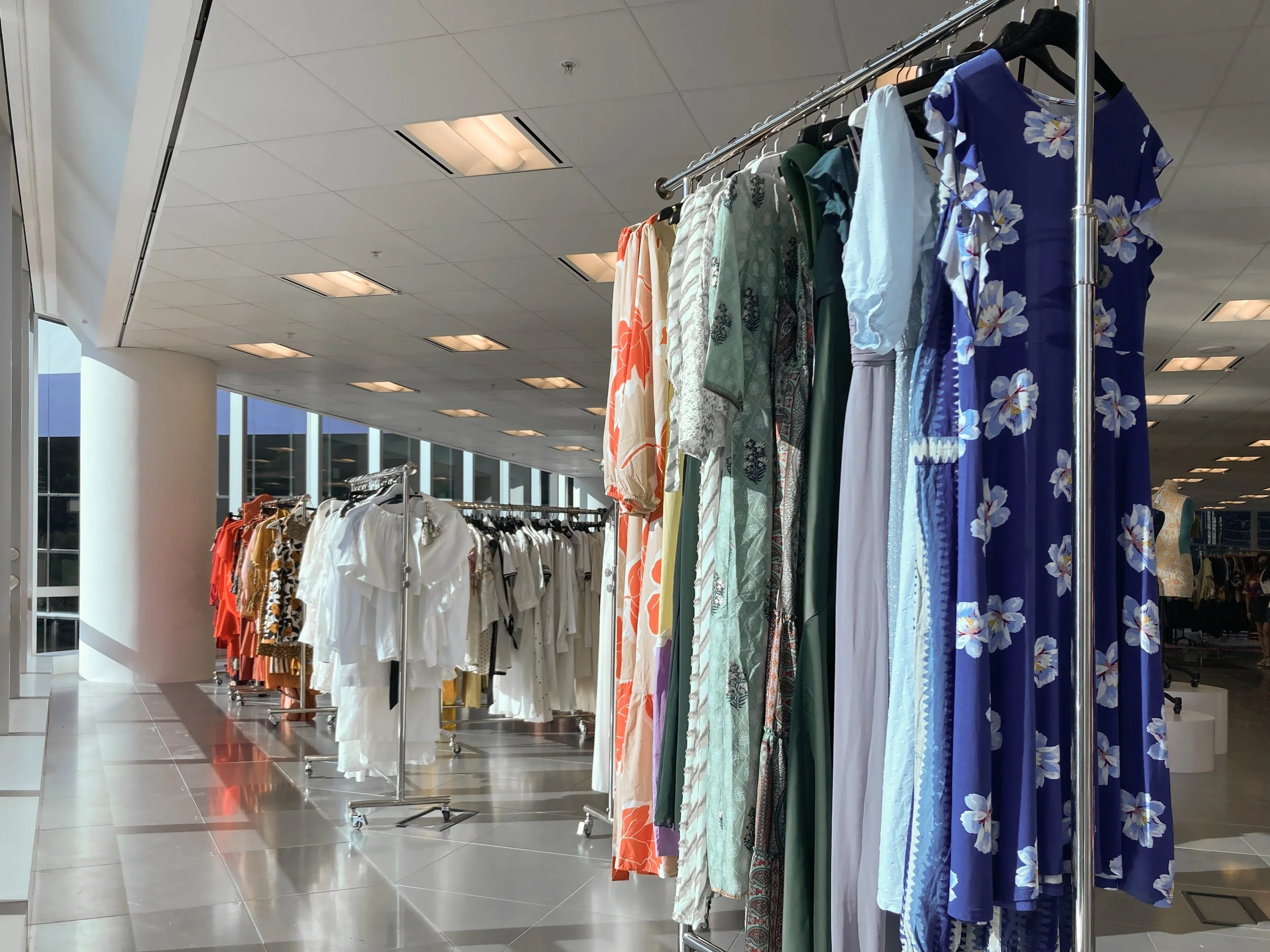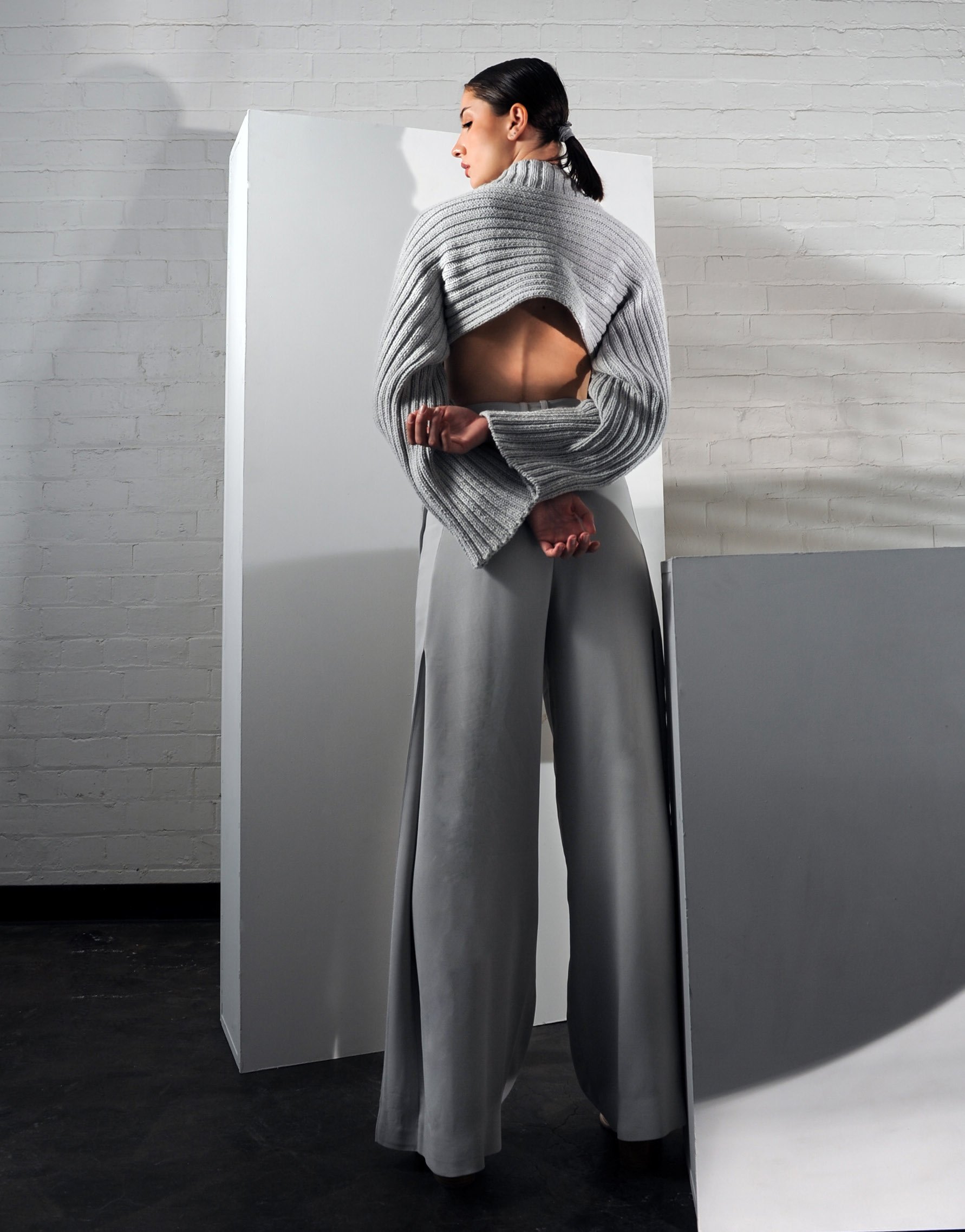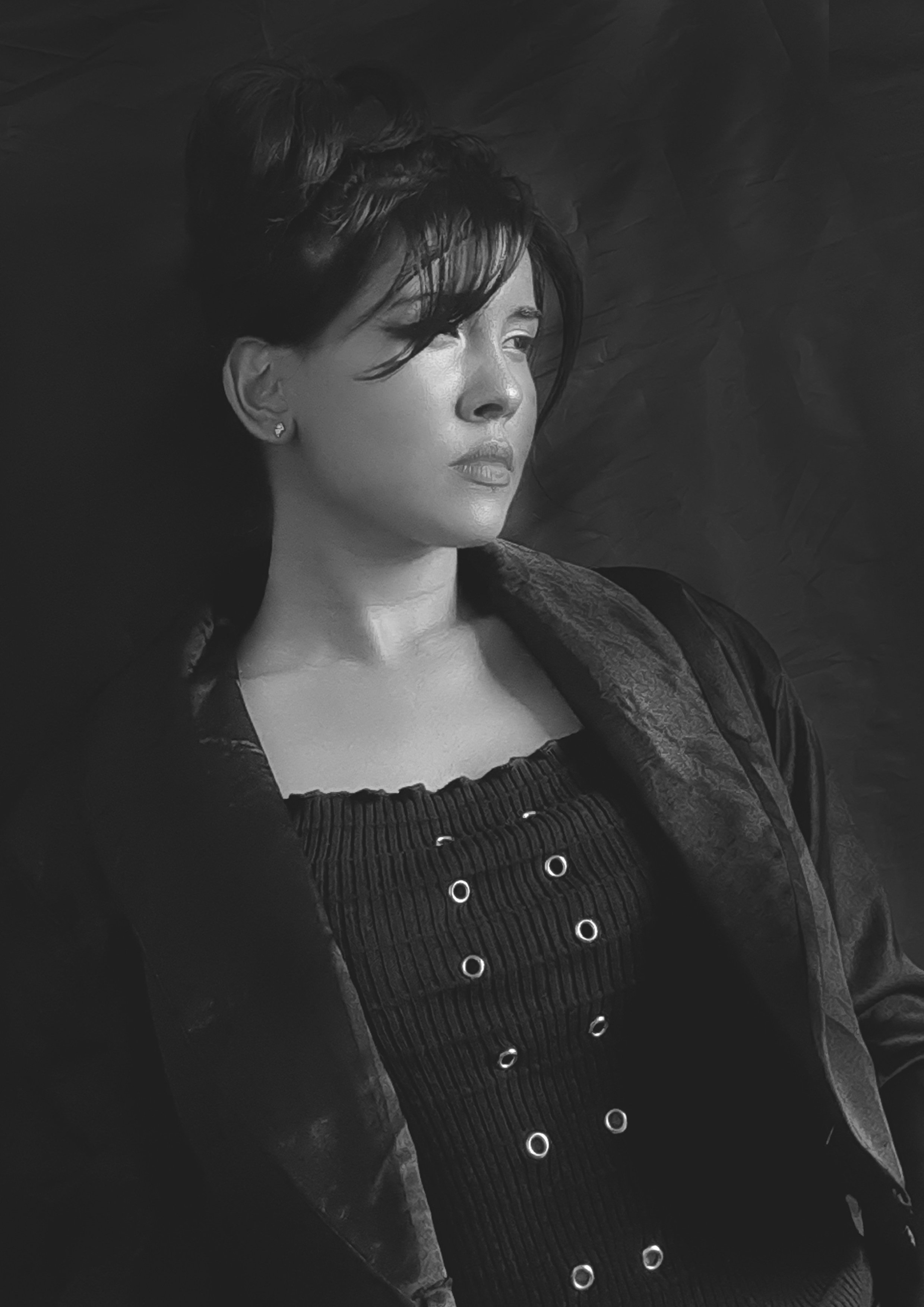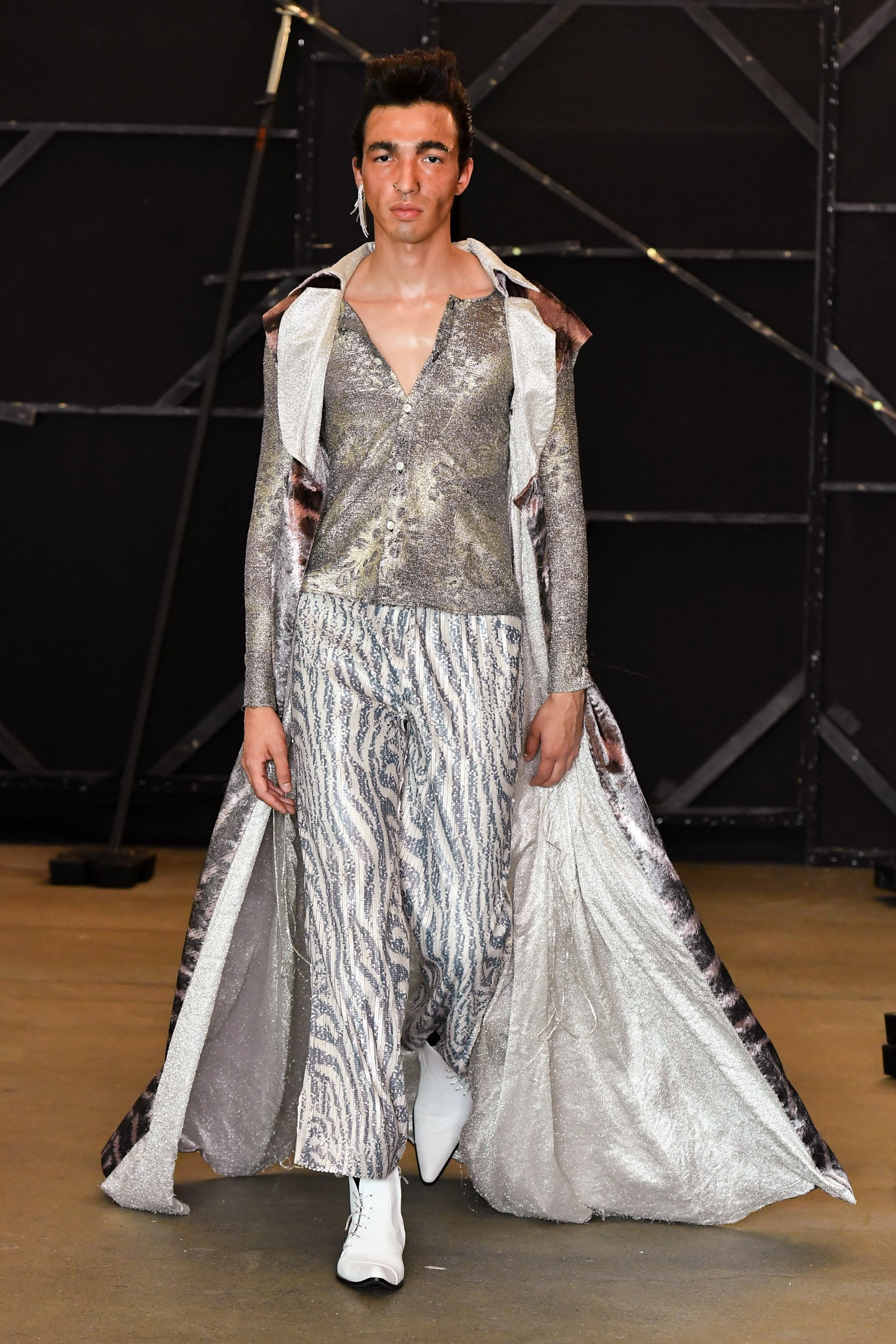Patrick Lam

Patrick Lam
HONG KONG
“Don’t underestimate your ability. You are able to do more for the environment.”
Seeing fashion companies abandon their garment and fabric samples without much care raised alarms for Patrick Lam. When he found a pile of unwanted garment samples at his workplace, he decided to reconstruct them into something new, alongside end-of-rolls sourced from Hong Kong’s Sham Shui Po fabric district.
“I want to attract consumers of fast fashion to re-examine the industry and reduce their wasteful impact of chasing seasonal trends,” shares Patrick, who holds a BA (Hons) in Fashion Design from Nottingham Trent University and a Higher Diploma in Fashion Design from the Hong Kong Design Institute.
Inspired by the British ‘Mod’ subculture of the 1960s and their customisation of Vespa scooters, Patrick set to work on his collection, ‘The Mods.’ Like the early ‘Mods’ who wore military jackets to prevent stains from contaminating their expensive suits while riding bikes, army coats became a prevalent part of his design, combined with spliced suit and denim elements. ‘Mods’ were also part of the working class, so Patrick chose denim to honour the labourers’ style of clothing from that time period.
The collection also uses reconstruction techniques to transform discarded garment samples made mainly from cotton and nylon with high durability, including a knitted polo shirt, knitted fleece sweatshirt, and polyester trousers. Other surplus fabrics, sourced from friends and the Sham Shui Po fabric district in Hong Kong, are used to match the design as a whole.
Oversized tailoring allows for flexibility so that even when bodies change, wearers can still fit into the garments. In designing for low impact on the environment, Patrick opts to keep the materials as-is, avoiding additional wash effects.
“People are not paying attention to the quality of clothes, but only the trendy styles,” Patrick laments. Forgoing trends, he instead highlights the values of quality and proportion with timeless military silhouettes, creating a classic look that will keep the design in use for longer.
Patrick also envisions the potential to tailor his suits for his consumers, allowing them to select fabrics and colours to cultivate a sense of ownership for their clothes, thus prolonging their use through emotional attachment. The participatory process also allows people to gain a sense of achievement, raise their awareness of fashion's environmental impact, and reduce the chances of garments being discarded.
In his creative process, Patrick also embraces zero-waste pattern techniques, turning leftover fabrics into details such as trimmings within the collection. “The process of fashioning something new out of old fabric gives me a great sense of achievement and keeps me designing sustainably.”
Congratulations to Redress for successfully organising the Redress Design Award 2022.
We would like to thank all of our sponsors and partners, without whom the Redress Design Award would not be possible.
Tanja Wessels challenged herself to not buying a single item of new clothing. Read her tips on how you can do it too.
The Redress Design Award is more than just the world’s largest sustainable fashion design competition.
Dive into our photoshoot shining a new light on the future creative frontrunners.
See the stunning looks from the finalists’ collections in our first ever lookbook, professionally styled and shot in studio with Farfetch.
Discover what Redress Design Award alumni have been accomplishing recently, from fashion weeks to master’s collections, publishing research, brand collaborations, and more.
Ashutosh Panda found inspiration for his sustainable collection by looking to the stars — specifically, the magnetar, one of the most powerful neutron stars of the universe.
As a Latino living in Tokyo, Japan, Cris Miranda discovered the beautiful craftsmanship of the kimono and admired its deep cultural meaning and high quality fabric.
For designer Drina Marco, the Spanish word “monda” — meaning “fruit peel” — was the first layer to what would become her sustainable collection.
Federico Badini Confalonieri has always valued nature and the environment. When he learned of the massive issue of microplastics in fashion, he knew he had to find a way to address it.
Showcasing an ability to make something extraordinary out of the ordinary, for her collection Lívia Castro turned to a wardrobe staple: jeans.
When a transgender friend experienced cyberbullying, Nawoda Bandara decided to show solidarity through design.
Seeing fashion companies abandon their garment and fabric samples without much care raised alarms for Patrick Lam.
The collapse of Meethotamulla, a massive garbage dump, on homes in Colombo, Sri Lanka, killed over 30 people, including children — and was a turning point in the life of designer Ruwanthi Gajadeera.
Reflecting the competition’s creative legacy of revaluing waste, the editorial photoshoot of the Redress Design Award 2022 unveils a warehouse of renewed wear to showcase our finalists’ looks.
Since the approval of the EU Green Deal in 2019, the European Union has emerged as the world’s leading policy maker on sustainability issues.
After winning the Redress Design Award 2021, Jessica Chang immediately joined the Timberland design team in China, working remotely to collaborate on their upcoming Lunar New Year 2023 collection, ‘Year of the Rabbit’.
Shop or browse the latest sustainable collections from Redress Design Award alumni brands.





























